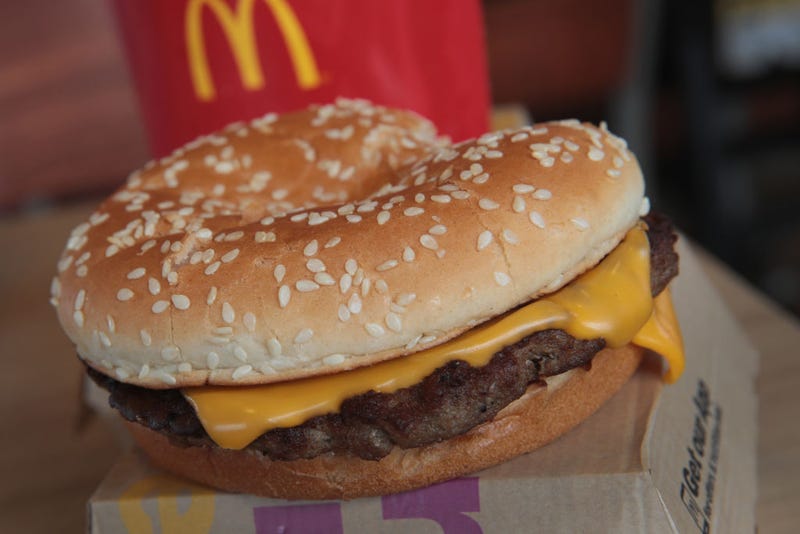
McDonald's and Wendy's are celebrating after defeating a lawsuit accusing them of deceiving customers by exaggerating the size of their burgers.
In a weekend decision, U.S. District Judge Hector Gonzalez found no proof that the fast-food chains delivered smaller burgers than advertised, or that plaintiff Justin Chimienti had even seen ads for the McDonald's Big Mac and Wendy's Bourbon Bacon Cheeseburger he bought.
Listen and subscribe to The L.A. Local podcast: your TL;DR for what's happening in Southern California
Chimienti claimed that McDonald's and Wendy's publish advertisements with pictures of menu items that look more appealing than how the food turns out when served to customers.
"Not only do the menu items generally appear more appetizing in the advertisements, but the ads also allegedly overstate the amount of toppings and, for hamburgers, the thickness of the beef patties," the lawsuit states.
The suit goes on to accuse McDonald's and Wendy's of achieving "the exaggerated patty size in their advertisements by using uncooked meat in the ads because '[i]n general, meat shrinks 25% when cooked.'"
"Plaintiff alleges this overstatement is readily apparent because, in McDonald’s advertisements, 'the beef patty extend[s] all the way to the edge of the bun,' but the patty 'comes nowhere near the edge of the bun' when a hamburger is actually served," the lawsuit states.
Chimienti, who claims he suffered financial damage because of the deceptive advertising, included examples of ads used on the restaurants' websites and cited an interview with a "food stylist" who corroborated his allegations. Still, Gonzalez was not swayed.
"Plaintiff does not allege that Defendants created a misleading impression about the size of their meals by using more meat in their advertisements than they serve in their stores -- he instead alleges that Defendants create this impression by using an identical amount of uncooked meat in their ads," Gonzalez wrote in his ruling. "This concession that both the advertisements and the products served in stores contain the same amount of meat is fatal to
Plaintiff’s claims."
The judge pointed out that Chimienti said he purchased Wendy's Big Bacon Cheddar Cheeseburger and McDonald's Big Mac, but he didn't say he saw any specific advertisements for those burgers and he made no allegations about how the items he ordered were visually presented.
Even if Chimienti had seen the advertisements cited in his complaint, Gonzalez said he failed to adequately show that a reasonable customer would likely be misled by them. The judge added that the advertisements amount to "puffery," which is not illegal.
"Defendants’ efforts to present appetizing images of their products are no different than other companies’ use of visually appealing images to foster
positive associations with their products, which courts within the Second Circuit have held to be immaterial puffery as a matter of law," Gonzalez wrote.
In a separate but similar lawsuit that is moving forward, Burger King is accused of cheating customers by making its famous Whopper sandwich appear larger than it actually is. BK sought to dismiss the lawsuit, but a judge ruled that the restaurant chain must defend against a claim that it used deception on in-store menu boards when selling Whoppers to reasonable customers.
The class action lawsuit accuses Burger King of intentionally portraying their sandwiches with ingredients that "overflow over the bun," sizing the burgers up by 35% for their advertisements. The suit also alleges that the ads contain more than double the meat consumers really get at the restaurants.
Follow KNX News 97.1 FM
Twitter | Facebook | Instagram | TikTok
